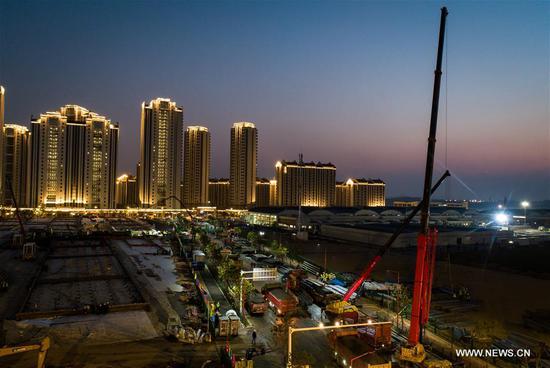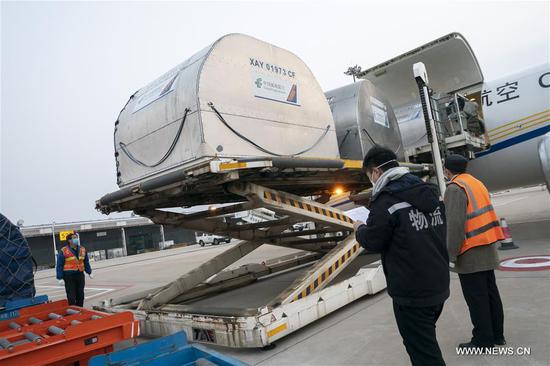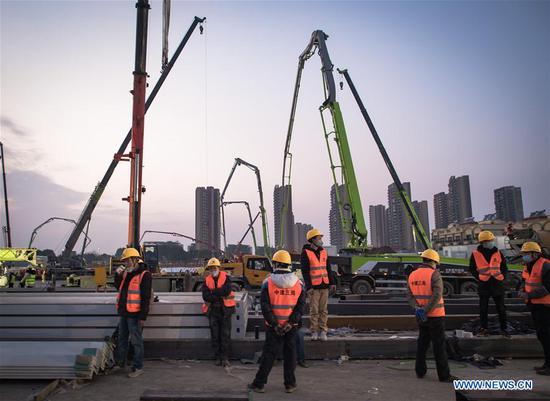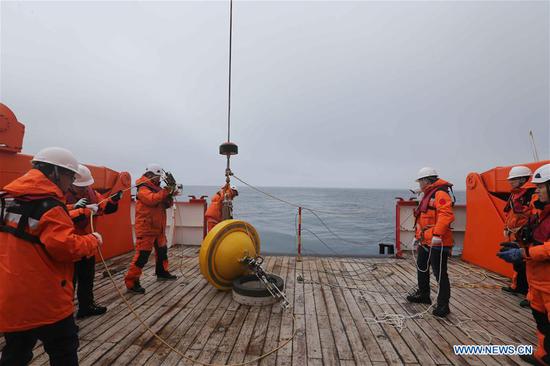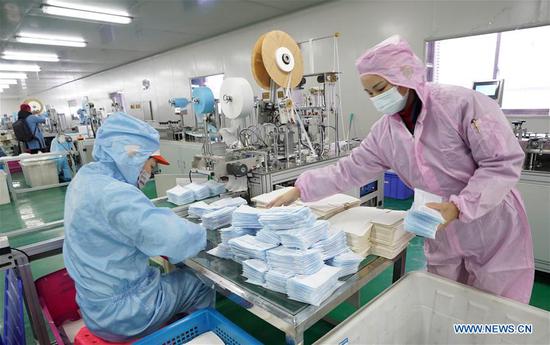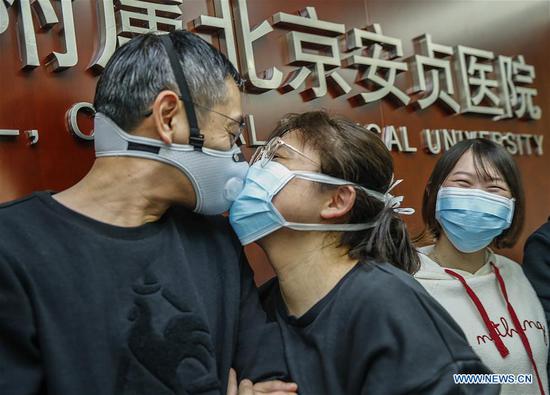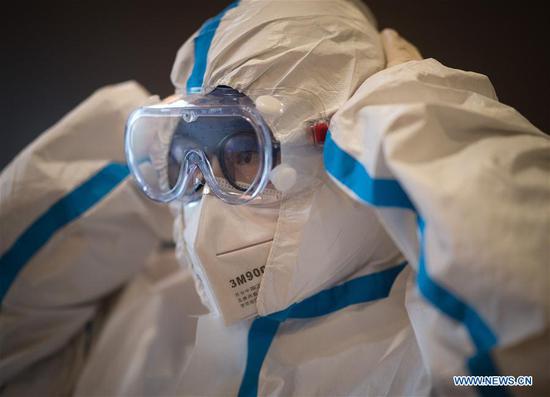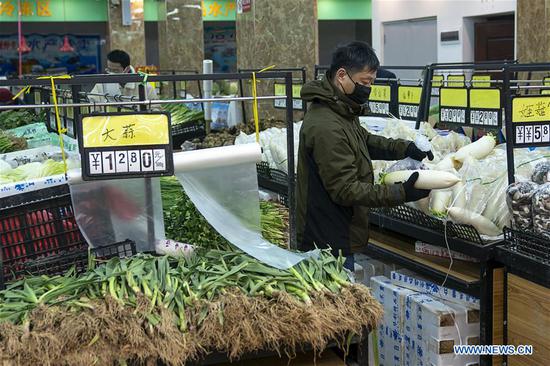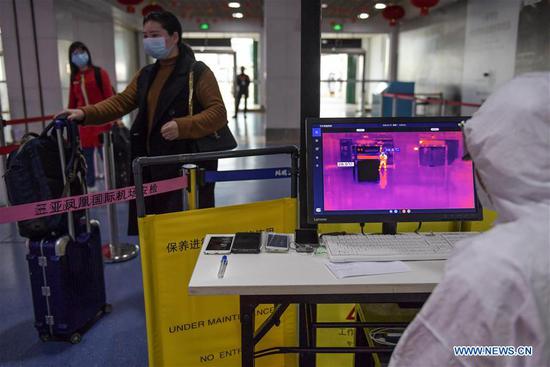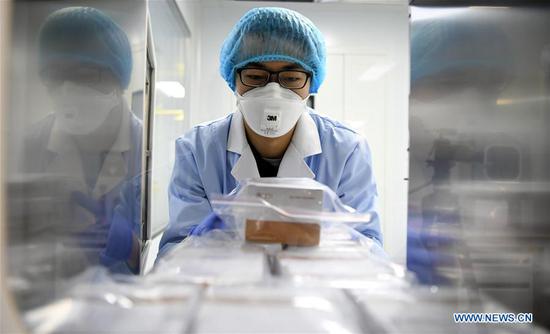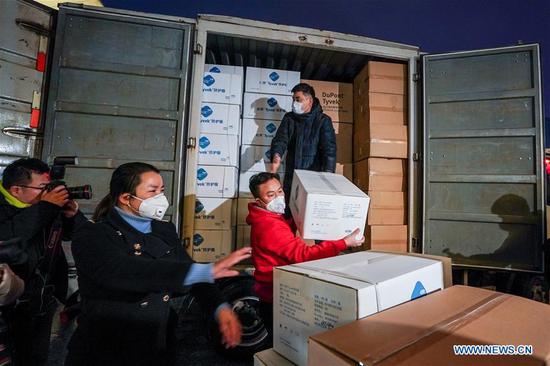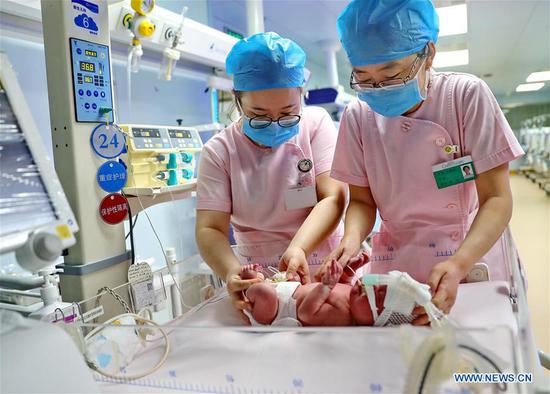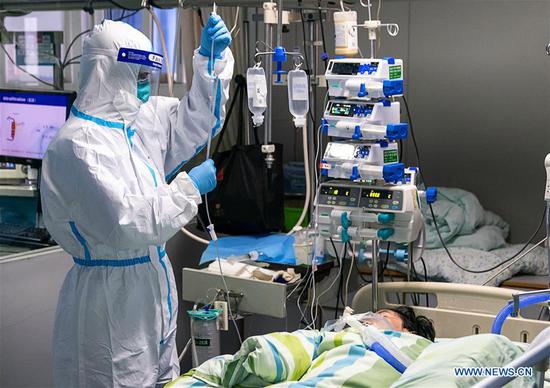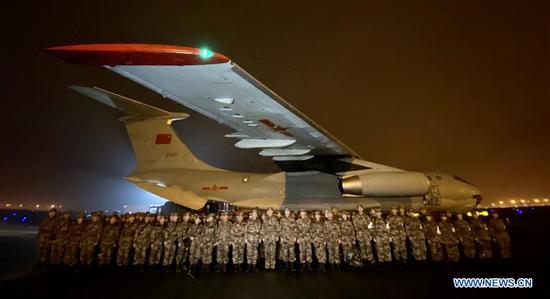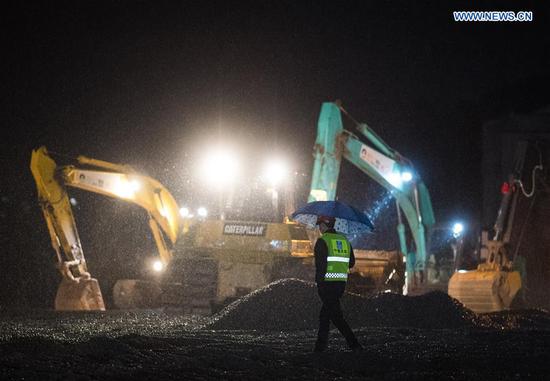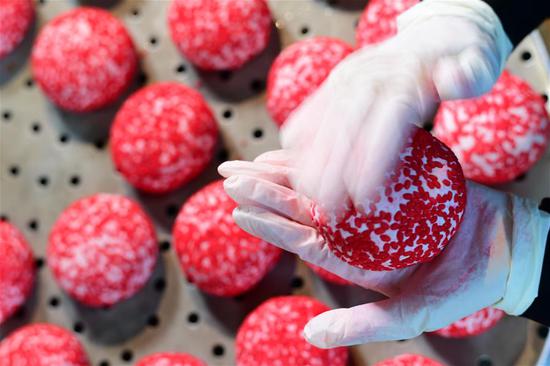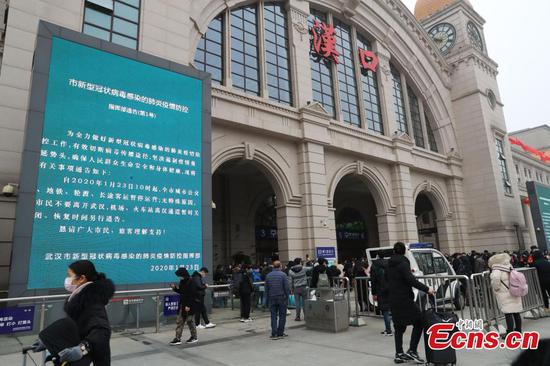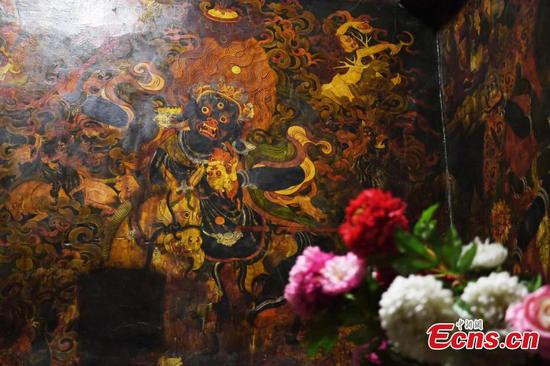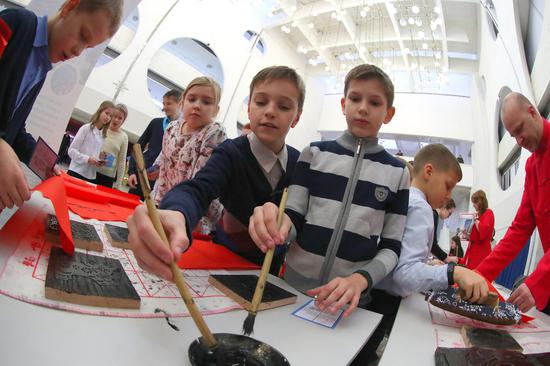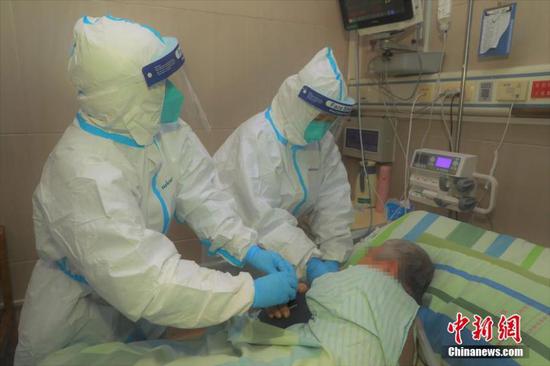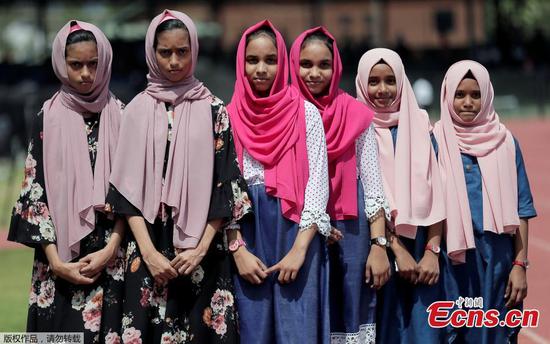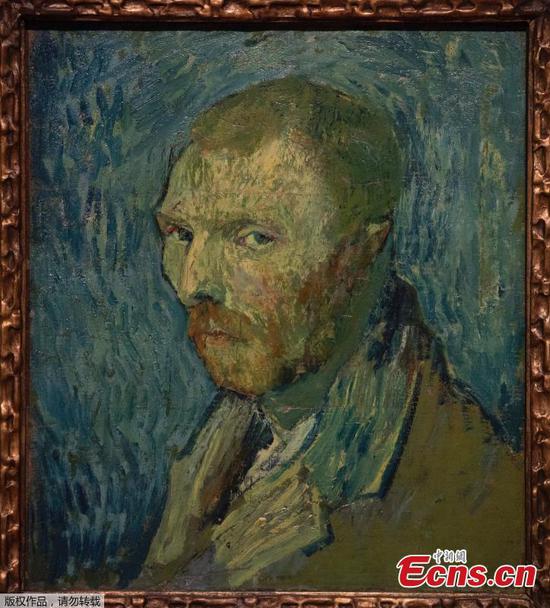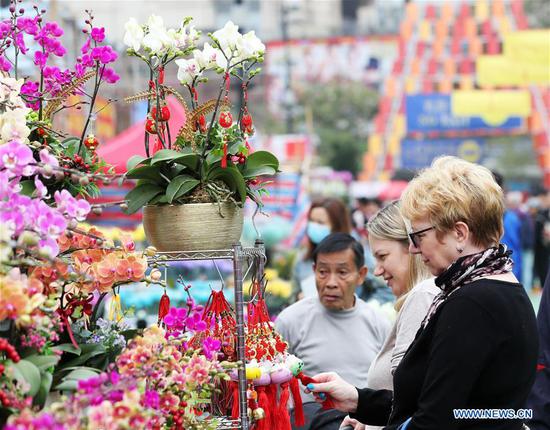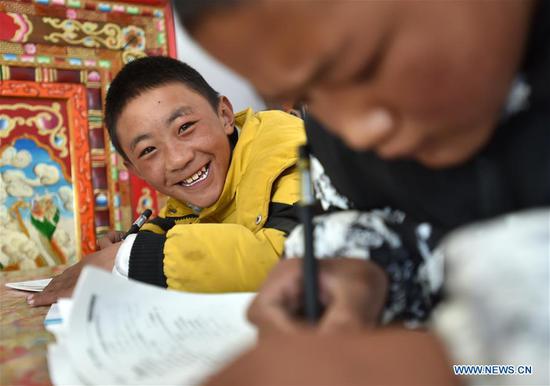All working as one
Wu Xing (not her real name), who works in a clinical laboratory at a major hospital in Wuhan, said:"December is the peak time for flu in Wuhan. We medical professionals had worked around the clock for the whole month and were already very tired. When the coronavirus outbreak occurred, it was a bit like a mental breakdown for us."
She said some colleagues were unable to return to Wuhan after the city halted all forms of transportation, so others have had to work their shifts instead.
"Patients with fever have a blood test at the clinical laboratory, and some may have a CT lung scan in the radiology department. Those who work in the two departments also have a higher risk of infection," she added.
"Now, many hospitals are not doing nasopharyngeal secretion tests to avoid risky exposure of nurses and technicians. They are often used to test for flu."
According to Wu, health professionals in hospitals in Wuhan and other cities in Hubei are in need of protective equipment that meets medical standards, especially N95 masks and protective clothing.
She said that before the new materials arrived, doctors and nurses in some hospitals had to use regular medical masks, shower caps, swimming goggles and raincoats to protect themselves.
She said such protective materials are only used in severe epidemic situations, like the 2003 SARS outbreak, so the number of manufacturers in China is limited. When the novel coronavirus suddenly appeared, supply and demand were unbalanced and it took time to provide sufficient protective clothing.
"The clothing is disposable, and Wuhan has more than 100,000 medical professionals, so the demand is huge. I hope there will be regular suppliers to provide us with a sense of safety, because the frontline soldiers cannot fall ill," Wu said.
"I have patience. It takes time for the central government to coordinate supplies to all hospitals. Also, kind-hearted individuals and enterprises are donating medical materials and money."
She called on society to care for cleaners and security guards, who are still working in Wuhan's hospitals.
"They are elderly, don't know how to use the internet and have lower incomes. This group lives 'in the cracks' and also needs help. Also, cleaners have to deal with medical waste, which means higher exposure to risks. They also need plenty of masks," she said.
"It's heartbreaking to see Wuhan's empty streets. It's not a ghost town, but the place where I was born and raised. I feel sad for Wuhan, but I'm sure the city will recover.
"The citizens of Wuhan have a spirit of solidarity. Some volunteers take risks to transport doctors and nurses between their homes and workplaces, and carry food and medical materials to hospitals in their private cars. They wear masks and disinfect their cars."
Medical professionals with ID can live in the hospital or in hotels that volunteer to house them, and take a bus or volunteers' private cars to commute to work.
Wu only goes home once a week. The first thing she does is take a shower and wash her clothes with disinfectant in a basin.
"My colleagues and I are not afraid of being infected with the virus, but we're afraid that our children or parents will be infected-it's more lethal for seniors. So, we dare not go home to see them," she said.









